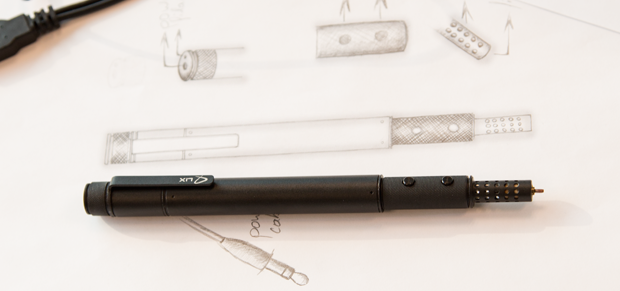
We wrote about a new Kickstarter project last week, the Lix 3D Pen Printer. But now some believe it cannot actually work.
A few weeks ago an Indiegogo project claimed to somehow determine your caloric intake merely by placing a sensor against your skin. Miraculous! No need to painstakingly enter foods and quantities into an app – the wristband does it for you!
Unfortunately, multiple scientists determined that there is no physical mechanism for such a technology. Meanwhile, the company behind the project was revealed to be Russian instead of American. Today those who pledged over USD$1M to the project wonder if they’ll ever see a product or their money again.
Against that backdrop we now have the Lix pen. Brian Benchoff at Hackaday performed some elementary physical calculations that appear to show that a USB-powered 3D pen cannot possibly deliver sufficient energy to melt plastic at the rate shown in the Lix pen’s video. He says:
The device is powered through a USB 3 port. In the video, the Lix team is using a MacBook Pro. This has a USB port capable of delivering 900 mA at 5 Volts, or 4.5 Watts. Another 3D printing pen, the 3Doodler, uses a 2A, 12V power adapter, equal to 24 Watts. Considering the 3Doodler works, and they both do the same basic thing, there’s something extremely odd going on here.
It’s possible something unusual may be going on here, such as the pen using a plastic filament with an unusually low melting temperature, or perhaps it has a short duty cycle after which the pen must store up heat for the next extrusion. Maybe the video is simply sped up, which would be a misrepresentation of the product, to be sure.
Regardless of whether the Lix pen actually works, we’re not particularly interested in pen printers for one reason: you can’t easily print anything complex because your arms will rapidly tire when precisely holding a relatively heavy object in 3D space. It’s not anything like 2D drawing, where your arms rest comfortably and your fingers do the work.
We’d rather just push the print button and come back later.
Via Hackaday

